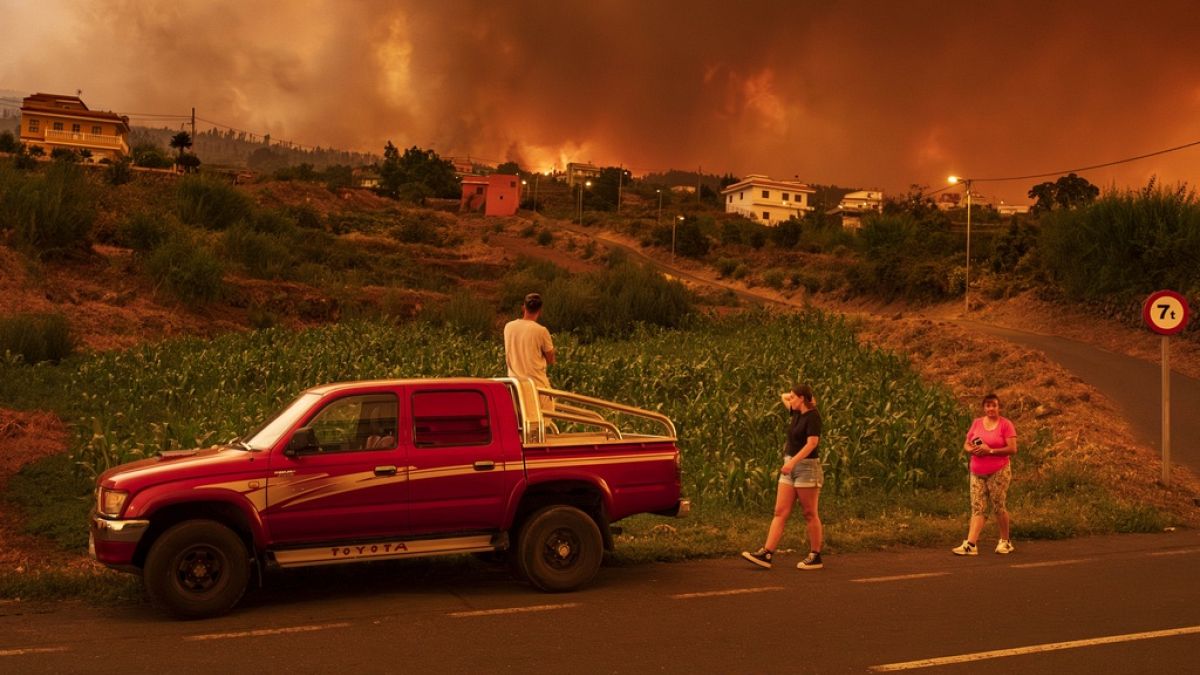California
Animate USA is opening a retail store in Torrance, California this summer!

Animate International will be opening anotherretail store in the Del Amo Fashion Center in Torrance, California this summer. The announcement was made at Anime Expo on Saturday.
The store will be located close to Animate USA’s warehouse. The new shop is located in the sixth largest mall in the US. Del Amo Fashion Center already boasts some Japanese stores like UNIQLO, Book Off, and Sanrio.
Animate’s new store is expected to be 3,843 sq. ft. in size, with a 313 sq. ft. event space. The event space will be used for pop-up shops and promotional events. The shop will sell anime merchandise such as figures, keychains, accessories, books, apparel and much more!
This store will be the first Animate store to open in the US. However, Animate has an online shop which ships across the US as well as Canada. A selection of their products is also available inthe animate section of US Kinokuniya Bookstores. Animate’s panel at Anime Expo will be offering anime merchandise, some of which will be specifically available at the convention. In addition, it has raffles and unique visuals on display!

Animate is Japan’s leading company in anime goods retail. It specialises in authentic licenced CDs, DVDs, Blu-rays, character goods and other merchandise relating to anime, manga and games. Anime is popular among fans of Japanese media for offering exclusive bonuses and original limited editions. The first store was opened in 1983, and in the 40 years since, Animate has made a name for itself around the world. Anime not only sells goods but also serves as a cultural hub and gateway to the cutting edge of the Japanese anime scene.
Also Read | Anime Expo 2023, North America’s biggest annual anime convention is here!
At the new Animate store, customers can expect new anime music videos and clips to play inside. Alongside this, it will be able to provide information on anime-related events. Animate even collaborates with cafes where customers can enjoy character-themed food and drink and decorations. It will be exciting to see how the new store in Torrance, California is developed.

California
Oregon and California announce Doodle for Google finalists – KOBI-TV NBC5 / KOTI-TV NBC2

Skip to content
California
First responders, veterans hail benefits of psychedelic drugs as California debates legalization • Oregon Capital Chronicle

Wade Trammell recalls the time he and his fellow firefighters responded to a highway crash in which a beer truck rammed into a pole, propelling the truck’s engine through the cab and into the driver’s abdomen.
“The guy was up there screaming and squirming. Then the cab caught on fire,” Trammell says. “I couldn’t move him. He burned to death right there in my arms.”
Memories of that gruesome death and other traumatic incidents he had witnessed as a firefighter in Mountain View, California, didn’t seem to bother Trammell for the first seven years after he retired in 2015. But then he started crying a lot, drinking heavily and losing sleep. At first, he didn’t understand why, but he would later come to suspect that he was suffering from post-traumatic stress disorder.
After therapy failed to improve his mental well-being, he heard about the potential benefits of psychedelic drugs to help first responders with PTSD.
Last July, Trammell went on a retreat in Puerto Vallarta, Mexico, organized by The S.I.R.E.N. Project, a nonprofit that advocates the use of psychedelics and other alternative medicines to help first responders. He took psilocybin mushrooms and, the next day, another psychedelic derived from the toxic secretions of the Sonoran Desert toad. The experience, he says, produced an existential shift in the way he thinks of the terrible things he saw as a firefighter.
“All that trauma and all that crap I saw and dealt with, it’s all very temporary and everything goes back into the universe as energy,” Trammell says.
Abundant research has shown that psychedelics have the potential to produce lasting relief from depression, anxiety, PTSD, addiction, and other mental health conditions. Many universities around the United States have programs researching psychedelics. But experts warn that these powerful drugs are not for everybody, especially those with a history of psychosis or cardiovascular problems.
Most psychedelic drugs are prohibited under federal law, but California may soon join a growing number of local and state governments allowing their use.
Senate Bill 1012, which is working its way through the California Legislature, would allow the therapeutic use of psilocybin; mescaline; MDMA, the active ingredient in ecstasy; and dimethyltryptamine, the active ingredient in ayahuasca, a plant-based psychoactive tea. The drugs could be purchased and ingested in approved locations under the supervision of facilitators, who would undergo training and be licensed by a new state board. The facilitators would need a professional health credential to qualify.
The bill, co-sponsored by Sen. Scott Wiener, D-San Francisco, Assembly member Marie Waldron, R-San Diego, and several other lawmakers, follows last year’s unsuccessful effort to decriminalize certain psychedelics for personal use. Gov. Gavin Newsom, a Democrat, vetoed that bill, though he extolled psychedelics as “an exciting frontier” and asked for new legislation with “regulated treatment guidelines.”
Wiener says the new bill was drafted with Newsom’s request in mind. It is supported by some veterans and first responder groups and opposed by numerous law enforcement agencies.
One potential roadblock is the state’s budget deficit, which is pegged at between $38 billion and $73 billion. Newsom and legislative leaders may choose not to launch a new initiative when they are cutting existing programs. “That is something we’ll certainly grapple with,” Wiener says.
The legislation, which is making its way through committees, would require the new board to begin accepting facilitator license applications in April 2026. The system would look somewhat like the one in Oregon, which allows the use of psilocybin mushrooms under the guidance of state-licensed facilitators at psilocybin service centers. And like Oregon, California would not allow for the personal use or possession of psychedelics; the drugs would have to be purchased and consumed at the authorized locations.
Colorado, following the passage of a ballot initiative in 2022, is creating a system of regulated “healing centers,” where people will be able to legally consume psilocybin mushrooms and some other psychedelics under the supervision of licensed facilitators. Colorado’s law allows for the personal use and possession of a handful of psychedelics.
In California, the cities of Oakland, San Francisco, Berkeley, Santa Cruz, and Arcata have effectively decriminalized many psychedelics, as have other cities around the United States, including Ann Arbor, Michigan; Cambridge, Massachusetts; Detroit; Minneapolis; Seattle; and Washington, D.C.
Psychedelics such as psilocybin, ayahuasca, and peyote have been used for thousands of years by Indigenous populations in Latin America and the current-day United States. And some non-Indigenous groups use these substances in a spiritual way.
The Church of Ambrosia, with locations in San Francisco and Oakland, considers psilocybin mushrooms, also known as magic mushrooms, a sacrament. “Mushrooms affect the border between this world and the next, and allow people to connect to their soul,” says Dave Hodges, founder and pastor of the church.
Hodges was behind an unsuccessful attempt to get an initiative on the California ballot this year that would have decriminalized the possession and use of mushrooms. He hopes it will qualify for the 2026 ballot.
The pending California legislation is rooted in studies showing psychedelics can be powerful agents in mental health treatment.
Charles Grob, a psychiatry professor at the University of California-Los Angeles School of Medicine who has researched psychedelics for nearly 40 years, led a study that found synthetic psilocybin could help reduce end-of-life anxiety in patients with advanced-stage cancer.
Grob says that MDMA is good for couples counseling because it facilitates communication and puts people in touch with their feelings. And he conducted research in Brazil that showed ayahuasca used in a religious context helped people overcome alcoholism.
But Grob warns that the unsupervised use of psychedelics can be dangerous and says people should undergo mental and medical health screenings before ingesting them. “There are cases of people going off the rails. It’s a small minority, but it can happen and when it does happen it can be very frightening,” Grob says.
Ken Finn, past president of the American Board of Pain Medicine, says psychedelics have a number of side effects, including elevated blood pressure, high heart rate, and vomiting, and that they can trigger “persistent psychosis” in a small minority of users. Legal drugs also pose risks, he says, “but we have much better guardrails on things like prescriptions and over-the-counter medications.” He also worries about product contamination and says manufacturers would need to be tightly regulated.
Another potential problem is health equity. Since insurance would not cover these sessions, at least initially, they would likely attract people with disposable income. A supervised psilocybin journey in Oregon, for example, can cost more than $2,500.
Many people who have experienced psychedelics corroborate the research results. Ben Kramer, a former Marine who served in Afghanistan and now works as a psilocybin facilitator in Beaverton, Oregon, says a high-dose mushroom session altered his worldview.
“I relived the first time I was ever shot at in Afghanistan,” he says. “I was there. I had this overwhelming love and compassion for the guy who was shooting at me, who was fighting for what he believed in, just like I was.”
Another characteristic of psychedelic therapy is that just a few sessions can potentially produce lasting results.
Trammell, the retired firefighter, hasn’t taken psychedelics since that retreat in Mexico 10 months ago. “I just felt like I kind of got what I needed,” he says. “I’ve been fine ever since.”
KFF Health News is a national newsroom that produces in-depth journalism about health issues and is one of the core operating programs at KFF—an independent source of health policy research, polling, and journalism. Learn more about KFF.
California
Concerns over insurance rates spread far beyond fire-prone areas in California

ROSEVILLE — Hotter days are still to come, putting fire fears top of mind for many. However, it’s not just for homeowners who live in wildfire-prone areas but homeowners who call the suburbs home.
It’s not a new headline that insurance companies are pulling back on insuring California homeowners in high-risk fire zones, but what is new is how climate change is impacting homes in areas that aren’t typically considered a risk.
In Roseville, a homeowner was tasked by her insurance company to take photos of her home. What followed in the mail was a letter notifying her that she would be dropped by the company unless thousands of dollars worth of changes were made to the home, which was built within the last decade.
“This came as a surprise because we thought nothing has really changed,” said Nadia Melzer, a homeowner and Placer County realtor.
She’s been on both sides of a growing insurance issue that she once believed wouldn’t land at her front door or, in her case, in her backyard.
According to Melzer’s previous insurer (she’s since changed companies), her home needed updates that included trees being moved further apart in the backyard and closing soffits on the home.
On the other side of her backyard fence is an open field, which she believes is the main reason her former insurance company wanted to drop their home.
“Living here in the suburbs, I didn’t think that was anything I would have to worry about,” Melzer said.
CBS13 took these questions and concerns to Ryan Lundquist, an appraiser and housing analyst. He said that he’s heard stories like this and others locally that start with a letter in the mail about changes and end with a homeowner losing home insurance.
Tall grass, homes over 100 years old, trees close to the home, and a house near open space are all reasons Lundquist said he’s heard cited to homeowners about why their home insurance won’t be renewed.
“I’m starting to hear a lot more stories like this, and it seems like insurance companies are getting a bit nit-picky over issues,” he said.
Another trend Lundquist said he’s seen used by insurers: using drones for home inspection. He explained that a Rocklin client received notice that his home had been inspected by a drone and due to the findings, he would be dropped by his insurer.
“This is not just a California thing, but we’re seeing insurance issues in states like Florida and Texas and places where there’s been a lot of natural disasters,” Lundquist said.
Climate change, experts say, is playing a role in where some insurance companies choose to insure or renew. It’s why, Lundquist said, insurance issues aren’t limited to fire-prone areas but now in suburban neighborhoods, too.
Melzer also said she understands that fire is a concern for insurance companies but that they should support homeowners in times of need.
-

 News1 week ago
News1 week agoRead the I.C.J. Ruling on Israel’s Rafah Offensive
-

 News1 week ago
News1 week agoVideo: Protesters Take Over U.C.L.A. Building
-

 World1 week ago
World1 week ago€440k frozen in Italy over suspect scam by fake farmers
-

 World1 week ago
World1 week agoHoping to pave pathway to peace, Norway to recognise Palestinian statehood
-

 Science1 week ago
Science1 week agoSecond human case of bird flu detected in Michigan dairy worker
-

 News1 week ago
News1 week agoLegendary U.S. World War II submarine located 3,000 feet underwater off the Philippines
-

 Politics1 week ago
Politics1 week agoAOC demands Senate Democrats investigate reports of Jan. 6 flags flown at Supreme Court Justice Alito's home
-

 Politics1 week ago
Politics1 week agoNYC Mayor Eric Adams announces Urban Rat Summit to combat rodent crisis: 'I hate rats'
















